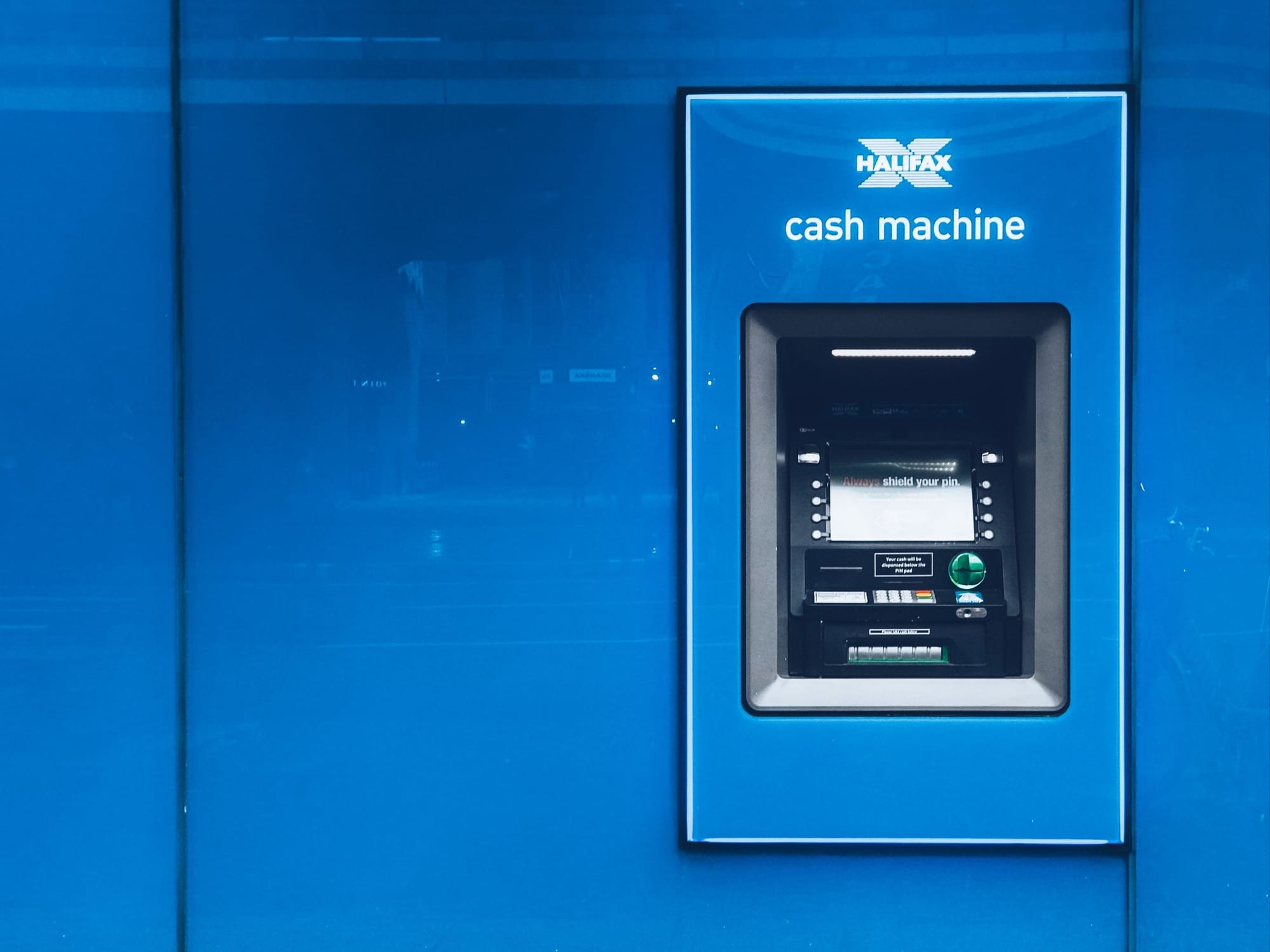La guía completa de préstamos de consolidación de deuda

What Is a Debt Consolidation Loan?
Debt consolidation is when a borrower takes out a new loan, usually with more favorable terms (a lower interest rate, lower monthly payment or both) and then uses the loan proceeds to pay off their other individual debts. Debt consolidation loans are commonly used to help pay off credit card balances, auto loans and other personal loans.
How Does a Debt Consolidation Loan Work?
To start consolidating debt, apply for a personal loan through your bank or another lender.
Once your lender approves you for a debt consolidation loan, it may offer to pay off your other debts automatically—or you will take the cash and pay them off yourself.
After your pre-existing debts are repaid with your new debt consolidation loan funds, you’ll make a single payment on your new loan every month.
While debt consolidation often reduces your monthly payment, it accomplishes this by extending the loan period of the consolidated loans.
Debt consolidation also streamlines payments and makes it easier to manage finances, like having a single monthly payment due date.
Does Debt Consolidation Hurt Your Credit?
Consolidation loans have the potential to affect your credit score in several ways.
Applying for a loan requires a hard credit check, which can result in a small dip in your credit score.
However, the impact of the inquiry on your score will decrease over time and disappear typically after two years.
Your credit score may also decrease if you take out a debt consolidation loan, pay off your credit cards and then rack up more debt on those cards.
That said, consolidating loans can be a great way to streamline your payments, reduce your monthly debt service and build healthy financial habits through regular, on-time payments.
For that reason, consolidation loans can actually help you improve your credit score over time.
What’s more, some lenders even offer credit tools beyond regular lending services to help you manage your credit profile.

Pros and Cons of Debt Consolidation Loans
Debt consolidation loans are a finance tool. Like any tool, it can either help or hurt you, depending on how you use it. Before you take out a debt consolidation loan, make sure you’ve fully considered the pros and cons.
Pros of Debt Consolidation
Simplifies your debt repayment
Rates may be lower than the rates on credit card debt
Helps you pay down debt faster if you opt for shorter-term loans
Can improve your credit score, especially if you’re consolidating credit card debt
Lowers your payment if you opt for long-term and/or lower-rate loans
Cons of Debt Consolidation
- Can damage your credit if you miss any loan payments
Your options may be more limited if you have bad credit
Can be somewhat confusing, especially as your old debts are being paid off
Can tempt some people to run up their credit cards again once they’re paid off
Read More: Pros and Cons Of Debt Consolidation
How To Shop for the Best Debt Consolidation Loan
Shopping for the best debt consolidation loan is easier than you might think. It only takes a little bit of time, and your efforts will be well worth it. Here are general the steps to take:
Be clear on what you want. People consolidate debt for lots of different reasons, including shrinking their monthly payments, saving money and simplifying their finances. If you’re clear on your reasons, you can keep an eye out for certain types of lenders.
Make a list of lenders. Spend a few minutes researching different lender options. Make sure to consider local banks and credit unions in your area, too.
Shop for rates. It only takes a few minutes to do this with each of the lenders on your list. Make sure to record the rate they can offer you, any fees, loan term lengths, monthly payment amount and any other features you like, such as if the lender repays your previous creditors directly.
Choose the best lender. Once you have all of your personalized offers in front of you, you can make the best objective decision possible. Most people choose the loan with the lowest rate, but you might prefer lenders with other features, too, like good customer service.
How To Get a Debt Consolidation Loan
While the process varies by lender, follow these general steps to apply for a personal loan:
Check your credit score. Check your credit score for free through your credit card issuer or another website that offers free scores. This will help you understand your creditworthiness and qualification chances. Aim for a score of at least 610; however, a score of at least 720 will yield the most favorable terms.
If necessary, take steps to improve your credit score. If your score falls below 610 or you want to boost your score to receive the best terms possible, take time to improve your score before applying, such as lowering your credit usage or paying off unpaid debts.
Determine how much debt you need to consolidate. Once you check your credit score, calculate how much money you need to borrow to consolidate all of your debts. Remember, though, you’ll receive your money as a lump sum, and you’ll have to pay interest on the entire amount—so only borrow what you need.
Shop around for the best terms and interest rates. Many lenders will let you prequalify prior to submitting your application, which lets you see the terms you would receive with just a soft credit inquiry and without hurting your credit score.
Submit a formal application and await a lending decision. After you find a lender that offers you the best terms for your situation, submit your application online or in person. Depending on the lender, this process can take a few hours to a few days.
How To Get a Debt Consolidation Loan With Bad Credit
If you have bad credit, you can strengthen your application by improving your debt-to-income (DTI) ratio.
You can do this by increasing your income—with a side hustle or otherwise—or by paying off some of your smaller, more manageable debts.
If you choose to pay down some of your debts, this could also help improve your credit score, accomplishing two things at once.
You may also have better luck applying for secured loans, which are more accessible to applicants with bad credit because they reduce the lender’s risk and often come with lower interest rates.Check Out: Best Debt Consolidation Loans For Bad Credit of 2023

Alternatives to Debt Consolidation Loans
If you don’t qualify for a traditional debt consolidation loan or want to compare other available options, consider alternatives, including:
Balance transfer credit cards. Some credit card providers offer cards that let you move—or transfer—existing credit card debt to a new card with a 0% introductory APR, often for a small fee. As long as you repay your debt within the introductory period, typically up to 21 months, you can avoid paying interest. Any unpaid balances after the introductory period ends will begin to accrue interest.
Home equity loan. If you have sufficient equity in your home, typically at least 15% to 20%, you may be eligible to borrow up to 85% of your equity. Funds are disbursed as a lump-sum payment, which you can use to repay high-interest debts, and interest is owed on the full loan amount. Home equity loans are secured by your home, which means the lender can repossess the property if you default on the debt.
Home equity line of credit (HELOC). Similar to a home equity loan, a HELOC also gives you access to funds through your home equity. However, instead of receiving funds as a lump-sum payment, you’ll have access to a credit line you can use as needed, and reuse as you repay your balance during the draw period. You’ll also only pay interest on the amount you borrow, not the entire approved amount.
Is Debt Consolidation a Good Idea?
Determining whether debt consolidation is a good idea for you depends on your credit score and whether you’re taking other steps to improve your financial habits. Debt consolidation may benefit you if:
You’re committed to paying off the full amount of your debt consolidation loan
You have enough cash flow to cover all of your debt payments
You’re okay with repaying your loans over a longer period of time
You’ve improved your credit score since you took out your original loans
You have a financial plan to avoid running up your debts again
Tips for Comparing Personal Loans for Debt Consolidation
Personal loans often are available online through traditional banks, credit unions and alternative lending platforms so you can apply quickly and conveniently, without having to visit a bank branch.
Many of these lenders also offer competitive interest rates and flexible repayment terms, meaning you may be able to save money by consolidating your other debts.Consider these tips when comparing personal loans:
Where possible, prequalify. Many personal loan providers offer prospective borrowers the ability to prequalify for a loan. This means the applicant can submit details about their financing needs, income, housing situation and other relevant information to find out what kind of loan amounts, rates and repayment terms they are likely to qualify for. Even better, this process typically only requires a soft credit inquiry so you can shop around without hurting your credit score. If you think you may benefit from consolidating your debt—but aren’t sure what rates you’ll qualify for—the prequalification process can streamline your search by ruling out lenders with higher rates.
Consider the purpose of your loan. While personal loans can be used for a broad range of purposes, they are limited to things like consumer debt consolidation, home improvements, vacations, weddings, funerals, large purchases and other personal expenses. For that reason, lenders often forbid you from using personal loans for postsecondary education expenses, business purposes and illegal activities, at a minimum. When considering a lender, always confirm that debt consolidation is an acceptable use of the loan funds. Even better—determine whether the lender will pay your other creditors directly.
Keep an eye out for additional fees. Some lenders offer fee-free personal loans that don’t require borrowers to pay origination fees, late payment fees, prepayment penalties or other common loan costs. However, this is more the exception than the rule, so it’s important to ask about fees when shopping for the best loan terms. This is especially important if you’re trying to save money by consolidating debt because fees can cut into your savings over the life of the loan. Likewise, if a lender charges an origination fee, find out whether it’s built into the APR or taken out of the loan amount prior to funding, as this may impact the loan amount you need to request.
Evaluate the lender’s customer support options. If you’ve found a lender that’s prepared to offer the money you need at acceptable terms, there’s one more thing to consider before signing the loan agreement. While customer support may not seem like a big deal in the honeymoon phase of your loan, it can make a huge difference if you encounter issues with payments or face a financial hardship during your repayment period. Review the lender’s customer service resources and read reviews from past and current borrowers to make sure it’s a good fit.
THANKS
BY
Comentarios